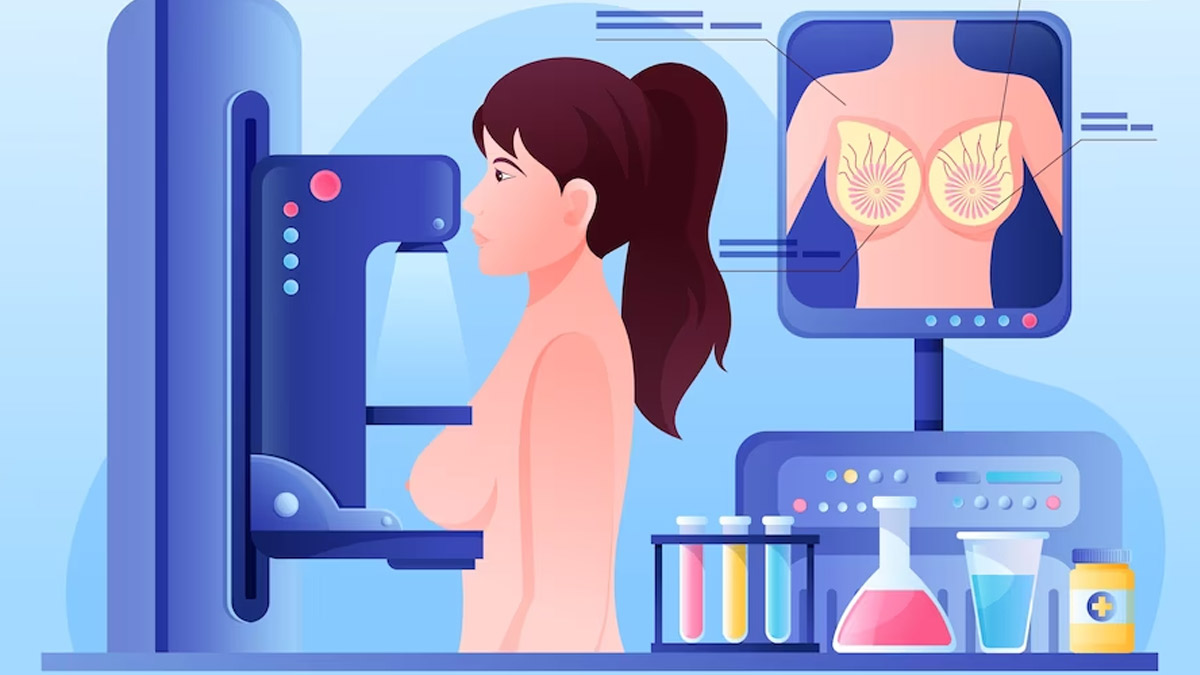
Mammograms play an important role in the early detection of breast cancer, which can save lives. The prospect of undergoing this screening test can be intimidating for many women. To ease your concerns and ensure a smooth experience, here are nine essential things to know before scheduling your first mammogram.
The Importance of Regular Screening
Regular mammograms are a vital part of breast health, especially for women over 40. Early detection of breast cancer significantly improves the chances of successful treatment and survival. Most doctors recommend yearly mammograms to detect any abnormalities at an early stage.
What is a Mammogram?
A mammogram is basically an X-ray of the breast used to detect breast cancer or other breast-related issues.
“During the procedure, the breast is gently compressed between two plates to spread the tissue, allowing for a clearer image. Although it might be uncomfortable for a brief moment, the procedure is generally tolerable and lasts only a few minutes”, said Dr Mukul Roy, Consultant Clinical & Radiation Oncologist at Jaslok Hospital, Mumbai.
“Mammogram abnormalities do not always indicate malignancy. However, more mammograms, tests, or exams are usually required to be certain. Follow-up tests are typically performed to either identify or rule out breast cancer”, Dr Roy added.

When to Schedule a Mammogram
The ideal time to schedule a mammogram is one week after your menstrual cycle when breast tissue is less tender and swollen. If you have entered menopause or have irregular periods, choose a date that is convenient for you.
Also read: Why Your Breast Is Hurting; 6 Possible Causes
Preparing for the Mammogram
On the day of your mammogram, avoid using deodorant, lotions, or powders on your chest and underarm areas, as these products can interfere with the X-ray images. Wear a two-piece outfit to simplify undressing for the procedure.
Communicate with Your Doctor
If you have any concerns, pre-existing conditions, or previous breast surgeries, communicate them to your healthcare provider before the mammogram. This will help them tailor the procedure to your specific needs and address any potential risks.
The Experience May Vary
Every woman's experience with mammograms can differ. Some might find the procedure slightly uncomfortable, while others may not feel any discomfort at all. Remember that it's a short-lived process and a small price to pay for early cancer detection.
Potential Results and Follow-Up
After your mammogram, a radiologist will review the images and determine if any abnormalities require further investigation. In some cases, additional imaging tests like ultrasound or MRI may be recommended. Receiving an abnormal result doesn't always indicate cancer, but follow-up tests are crucial for accurate diagnosis.
Also read: Importance Of Early Screening In Breast & Cervical Cancers
Emotional Support
Undergoing a mammogram can be emotionally challenging, especially for those with a family history of breast cancer or previous negative experiences. Reach out to friends and family for emotional support during this time.
Knowledge is empowering, and understanding what to expect before your first mammogram can help alleviate anxiety.







